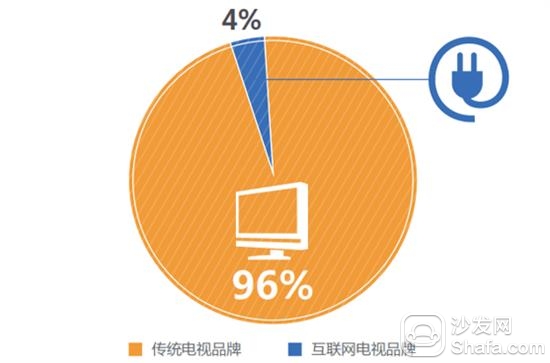
Smart TV users and mobile device users have different needs
There is no doubt that demand is a prerequisite for content design, and smart mobile devices and smart TVs are in fact the same in terms of software. This is well known, and both hardware and operating systems are similar. Why can companies such as Xiaomi, who are in the midst of the mobile Internet industry, become dissatisfied with the TV industry? The data shows that the content that the user pays attention to on the smart TV is very different from the mobile end. Smart TV users focus on video, games, and education. The content of mobile device users focuses on social media and news.
Different content determines the different ways of experiencing. Internet companies with sufficient development experience on mobile devices face virtually the same starting line as traditional TV manufacturers when faced with TV-based systems and application development. Therefore, whether it is a traditional manufacturer or a big Internet player, it needs to move forward in its exploration.

Everyone knows that the content of the content directly determines the activation rate and usage rate of smart TVs. In fact, this is the "content is the king" that Internet chatter has long clamoured for. This is true, but where does the content come from? This is a problem. At present, enterprises that truly grasp content discourse are not many and scattered. Whether it is a traditional TV maker or an Internet vendor, they can obtain content support. Companies such as CNTV, WCDMA, and Best Connect are willing to cooperate with major terminal vendors. Therefore, the actual content is not very different from each other.
Some people may say that some Internet companies will make their own copyrighted content, which will greatly increase their competitiveness. This is something that ordinary TV manufacturers cannot match. This may be the case, but the policy of the Chinese TV market has changed extremely rapidly. Not long ago, a piece of radio and television approvals directly took the big boxes to a half dead. Some companies that do terminal and content at the same time are vulnerable to changes in policy and have led to a large amount of investment in the previous period, and even lead to scattered investment. On the hardware side, these Internet bigwigs can only launch 寥寥two or three products, and they can't form an industrial chain and an effective ecosystem.

More and more users, who is the ear?
At present, the activation rate of smart TVs has greatly increased. In March 2014 alone, the activation rate has reached more than 77%. According to data provided by CITIC Securities, the annual sales volume of smart TVs in China has increased from 10.9 million in 2012 to 26.5 million in 2014. The cumulative total of TVs that were “activated†by accessing the Internet was also 1 in 2013. , 6.45 million grew to 50 million in 2014.

The data also shows that the television industry has its own uniqueness compared to the mobile industry. On the one hand, traditional TV companies are in transition. On the other hand, Internet companies want to add their own mode of operation to the traditional TV market. The ultimate purpose of both companies is actually the same, occupying the entrance.
Who can produce smart TV?
Xiaomi is producing TV, LeTV is producing TV, and Lenovo is also producing TV. It seems that TV hardware is very good. Just find a foundry and paste my brand. Then I am a TV manufacturer. Can this be true? International companies spend billions of dollars investing in OLED and IPS technologies. Matsushita also lost the right to speak in the television market because of the failure to invest in PDP.
According to the development trend of 2014, after all manufacturers have begun to produce smart TVs, smart TVs are bound to be the absolute mainstream of the future. On-demand and other functions will also become an important part of family life. The leading position of live TV will be replaced by the on-demand function.
Recommended installation sofa butler, download address: http://app.shafa.com/
